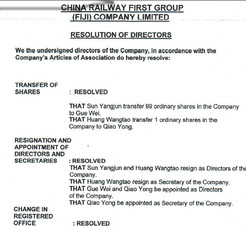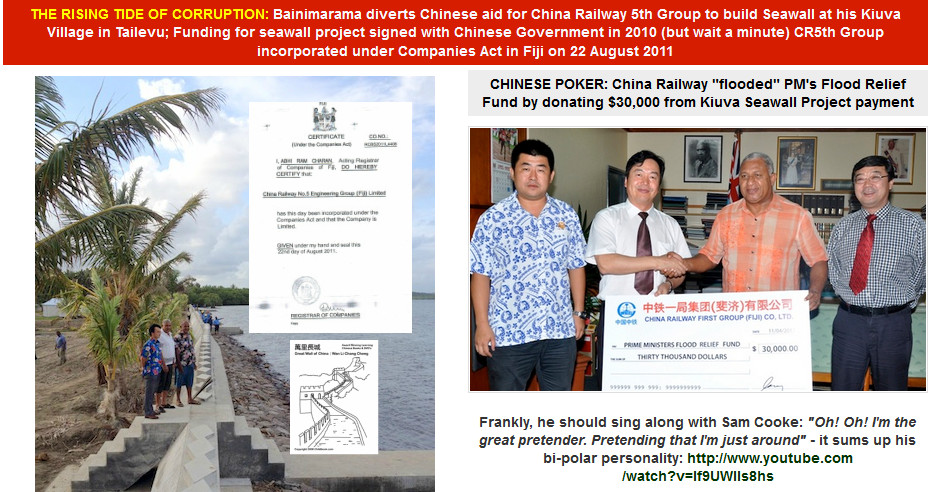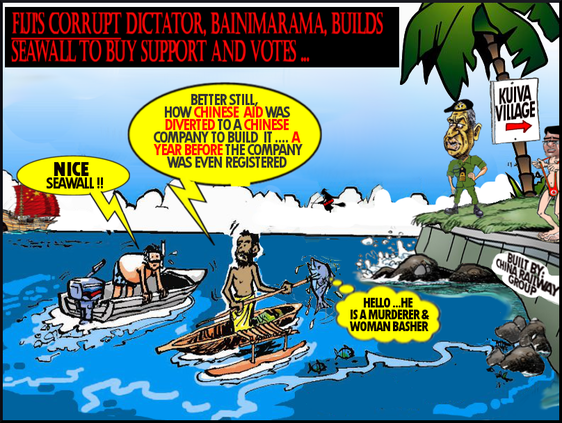| China's railway industry is indebted and corruption-riddled The company had debt of 408 billion yuan ($67.41 billion), and assets worth 503 billion yuan by the end of September 2013, according to the company's third-quarter earnings report. The firm had a net earning of 6.3 billion yuan from January to September 2013, the lowest since 2010, the financial report said. The company's shares plunged by 4.2 percent on Monday to 2.51 yuan, the lowest since late July. |
The heavily indebted Chinese railway company lost its president to suicide
China Railway Group president Bai Zhongren leapt to his death from his family home this weekend, according to local news reports, the latest in a series of deaths and corruption investigations that have plagued the country’s debt-plagued railway industry.
After the downfall of widely reviled state railway boss Liu Zhijun, who eventually received a suspended death sentence for corruption, the ministry of railways was dissolved and China Railway Corp. was spun off to run the system’s commercial assets—and to assume its fast-growing debts. China Railway Group, the company’s publicly-traded subsidiary, had outstanding debts of 531.9 billion yuan ($87.8 billion) in the third quarter, with a debt-to-asset ratio of nearly 85%, the South China Morning Post said Monday
More broadly, China’s sprawling rail system has fallen plague to same problems that have beset the country’s other state-owned industrial sectors. Massive spending on public projects has buoyed China’s GDP in recent quarters, but only at the cost of “exponential debt growth,” in the recent words of investor George Soros.
Several high-ranking Chinese officials and executives in the railways have committed suicide in recent years, including Li Zhi, transportation section chief at Nanning railway bureau, and an unnamed executive at China Railway Materials. Like Bai, these executives leapt to their death from high buildings.
China Railway Group reported Bai’s “accidental” death in a short message to investors on Saturday, but did not say how he had died. None of the reports about Bai have mentioned a suicide note. But his family members told local media that he had been depressed, and colleagues said the situation at work was tense because the company could not afford to pay its employees.
The company’s financials show a business overwhelmed by debt. For the first six months of 2013, China Railway reported a 45% increase in after-tax profit (pdf, pg. 4) to 3.7 billion yuan, but owed more than 100 times that amount. The company owed 189 billion yuan in “bank borrowings” and other long and short-term debt (pg. 20) and owed 189 billion yuan in “trade and bills payable,” (page 19) mostly to raw materials and machinery suppliers. Of those bills, 11% were more than a year old. It also had legal liabilities of 1.8 billion yuan, mostly related to a lawsuit by the Polish government for not completing a contract, and had pledged to guarantee another 12.8 billion yuan in bank and other borrowings taken out by investors and associated companies (pg. 22).
“Leaders are under huge pressure these days,” Wang Meng-shu, deputy chief engineer of the Chinese Academy of Engineering, China Railway Tunnel Group told the Economic Information Daily, a business newspaper affiliated with the state-owned Xinhua news agency. Days before Bai’s death, representatives from two of China Railway’s offices had come to the general headquarters to demand payment for their workers, “creating a big disturbance.” Wang said. “Spring festival is coming, the company should pay wages, but we’ve still got big holes in construction fund.
China Railway Group president Bai Zhongren leapt to his death from his family home this weekend, according to local news reports, the latest in a series of deaths and corruption investigations that have plagued the country’s debt-plagued railway industry.
After the downfall of widely reviled state railway boss Liu Zhijun, who eventually received a suspended death sentence for corruption, the ministry of railways was dissolved and China Railway Corp. was spun off to run the system’s commercial assets—and to assume its fast-growing debts. China Railway Group, the company’s publicly-traded subsidiary, had outstanding debts of 531.9 billion yuan ($87.8 billion) in the third quarter, with a debt-to-asset ratio of nearly 85%, the South China Morning Post said Monday
More broadly, China’s sprawling rail system has fallen plague to same problems that have beset the country’s other state-owned industrial sectors. Massive spending on public projects has buoyed China’s GDP in recent quarters, but only at the cost of “exponential debt growth,” in the recent words of investor George Soros.
Several high-ranking Chinese officials and executives in the railways have committed suicide in recent years, including Li Zhi, transportation section chief at Nanning railway bureau, and an unnamed executive at China Railway Materials. Like Bai, these executives leapt to their death from high buildings.
China Railway Group reported Bai’s “accidental” death in a short message to investors on Saturday, but did not say how he had died. None of the reports about Bai have mentioned a suicide note. But his family members told local media that he had been depressed, and colleagues said the situation at work was tense because the company could not afford to pay its employees.
The company’s financials show a business overwhelmed by debt. For the first six months of 2013, China Railway reported a 45% increase in after-tax profit (pdf, pg. 4) to 3.7 billion yuan, but owed more than 100 times that amount. The company owed 189 billion yuan in “bank borrowings” and other long and short-term debt (pg. 20) and owed 189 billion yuan in “trade and bills payable,” (page 19) mostly to raw materials and machinery suppliers. Of those bills, 11% were more than a year old. It also had legal liabilities of 1.8 billion yuan, mostly related to a lawsuit by the Polish government for not completing a contract, and had pledged to guarantee another 12.8 billion yuan in bank and other borrowings taken out by investors and associated companies (pg. 22).
“Leaders are under huge pressure these days,” Wang Meng-shu, deputy chief engineer of the Chinese Academy of Engineering, China Railway Tunnel Group told the Economic Information Daily, a business newspaper affiliated with the state-owned Xinhua news agency. Days before Bai’s death, representatives from two of China Railway’s offices had come to the general headquarters to demand payment for their workers, “creating a big disturbance.” Wang said. “Spring festival is coming, the company should pay wages, but we’ve still got big holes in construction fund.







